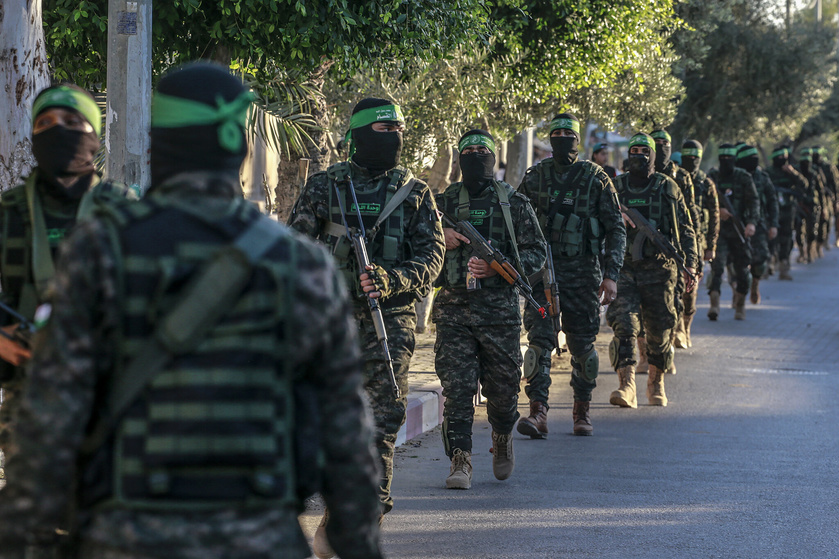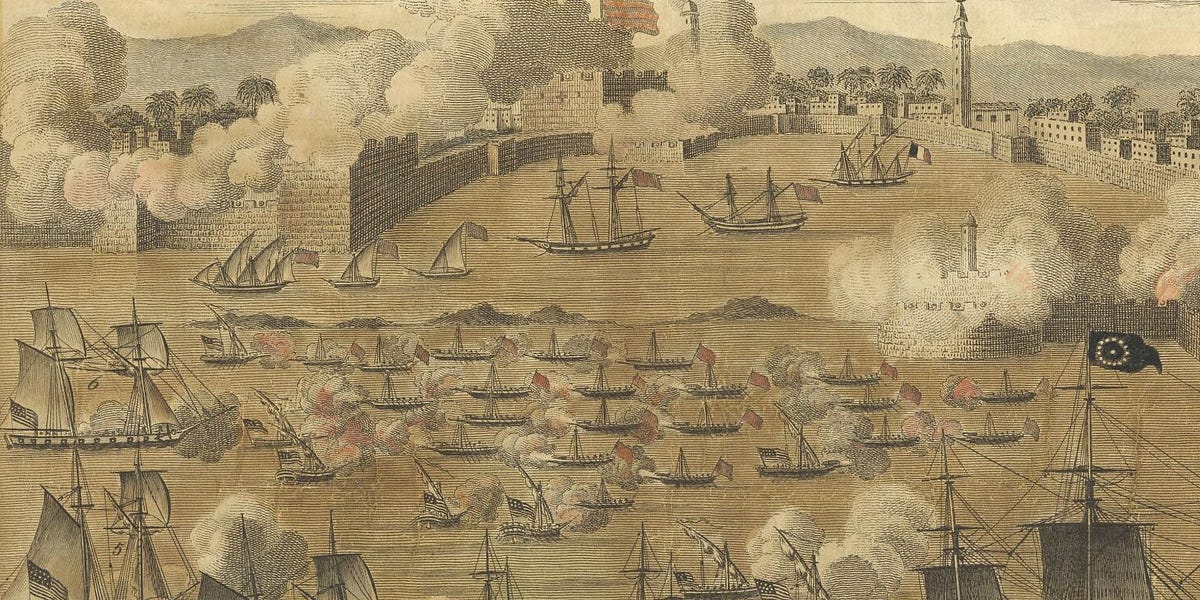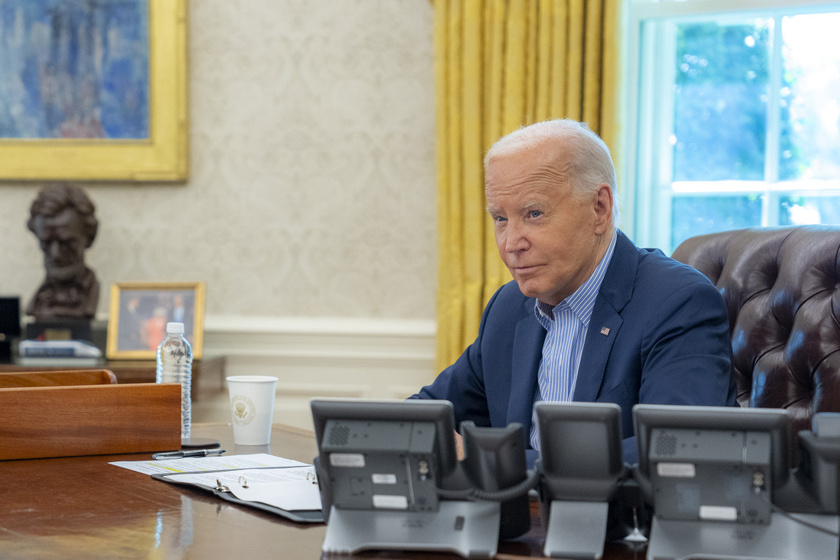Joe Biden and White House validators are counseling the Israelis not to make the same mistake US leadership did after 9/11 by lashing out angrily and without a long-term plan. But that’s not Israel’s real problem. Jerusalem’s strategic dilemma is that its longtime superpower patron has switched sides — the White House is defending Hamas in order to preserve its partnership with Israel’s chief enemy, the Islamic Republic of Iran.
On Monday Biden’s former boss Barack Obama released a statement echoing the White House’s messaging campaign in support of its efforts to restrain Israel from a ground invasion of Gaza. In short, Israel is about to make the same mistakes we made after 9/11. “America itself has at times fallen short of our higher values when engaged in war,” Obama writes. “In the aftermath of 9/11, the U.S. government wasn’t interested in heeding the advice of even our allies when it came to the steps we took to protect ourselves against Al Qaeda.” Obama's message is this: Israel has to listen to us because we resupply the munitions without which they cannot make war.
Obama also listed articles, “with useful perspectives and helpful background information,” by his former communications advisor Ben Rhodes and New York Times columnist Thomas Friedman hitting on the 9/11 theme. Rhodes’ piece is intended to “remind us of the risks of responding to violence with greater violence,” like the “US’s vengeful reaction to September 11.” According to Friedman, Biden “pleaded with Israeli military and political leaders to learn from America’s rush to war after Sept. 11, which took our troops deep into the dead ends and dark alleys of unfamiliar cities and towns in Iraq and Afghanistan.”
America’s problem wasn’t that the George W. Bush administration responded to 9/11 with overwhelming force to make the cost of future potential attacks on the United States prohibitively high. The problem rather was that Bush changed the mission from deterrence to democracy promotion. And at that point, the boondoggle that enriched Washington, DC while impoverishing the regions that sent its children to war was on.
It seems that at least at first Bush was earnest about the freedom agenda. It was based on the thesis that terrorism was the result of despotic Middle Eastern regimes repressing their populations: With no other channels to express their political longings, the people of the region had no other choice but political violence. They terrorized the West because our governments supported the people who terrorized them. Thus, the best way to protect Americans was to topple their tormentors and liberate the Middle East.
In my 2011 book, The Strong Horse: Power, Politics, and the Clash of Arab Civilizations, I showed why the freedom agenda was predestined to fail: American policymakers had risked US security on a thesis detached from reality. As Lebanese journalist Hazem Saghiyeh told me: “In Iraq, the Americans thought the problem was with Saddam’s regime. Once you get the regime out of the way, then things would be okay. But they’re not. The Arabs on the other hand have always thought the problem in the region was colonialism, Europe, the United States, but it’s not. The problem is the society.”
That is, the problem with the Middle East is not simply the regimes, but the societies from which the regimes are drawn. Or as Plato puts it in Book VIII of The Republic, “The states are as the men are. They grow out of human characters.”
Thus the freedom agenda sheds light on the question whether ordinary Palestinians support Hamas. In 2006, Bush’s Secretary of State Condoleezza Rice urged the Palestinians to move to elections and as many observers had warned, Hamas defeated its ostensibly less murderous rival, Fatah. Fatah and its international backers, led by the United States, rejected the outcome, which led to an intra-Palestinian war that left Hamas in charge of Gaza while Fatah ruled the West Bank.
It’s true that much of the current population in both territories wasn’t yet old enough to vote in the 2006 elections, but the issue is not whether Palestinians today would vote for Hamas but whether they would vote for a faction that promised to end the war on Israel or one that would continue it. The historical record shows that Palestinians have overwhelmingly supported war against Israel since the 1948 founding of the Jewish state. Indeed, the only reason that Fatah doesn’t regularly wage terror attacks on Jews is because Israeli military and police protect them from superior Hamas forces.
The Biden administration forfeited the opportunity to try to split Gazans from Hamas after Israel cut off Gaza’s water and food supply as well as the electricity it supplies to the territory. There is no law, moral or even international, that requires one side to sustain enemy combatants or the population from which it draws its fighters. In effect, Gazans were given a choice as old as warfare itself: continued support of your leaders will lead to privation and eventually death; abandon your leaders and you will have life. By demanding that Israel restore water and electricity and allow aid trucks pass through Egypt, the White House lifted sanctions on an organization responsible for the largest one-day slaughter of Jews since the Holocaust, and tied the fate of Gazans to Hamas.
To best understand the current balance of power in the region, it’s useful to see the sides in terms of a normal war scenario in which combatant one (Israel) and combatant two (Hamas) occupy two separate territories. A third party (the US) opens a corridor of aid to territory two. By doing so, the third party makes clear it is the ally of the combatant that rules territory two — that is, Hamas. At the same time, the third party constrains and sabotages the attack plan of combatant one, thereby signaling it is an enemy of combatant one, Israel.
The Biden administration is doing everything in its power to derail Israel’s ground invasion of Gaza. While Biden gives public support to Israel, White House aides leak anonymously to show that Washington has no faith in Israeli leadership’s plans and goals. Washington asks for more time to get military assets in place across the region, which only gives Hamas more time to dig in, as world opinion inevitably turns against Jerusalem.
Obama, Biden, and their validators warn that Israel may get America dragged into a wider regional war with Hamas’ patron Iran, thereby embroiling the US in a replay of our post-9/11 disaster. But first Obama and now Biden have given the Iranian regime access to hundreds of billions of dollars in an effort to legalize its nuclear weapons program. Those are not signs of enmity but rather indicate an alliance.
The simple fact is this: with Obama and Biden, the US has switched sides. The White House is deterring Israel from striking against Hamas to preserve America’s new partnership with the Islamic Republic.


















